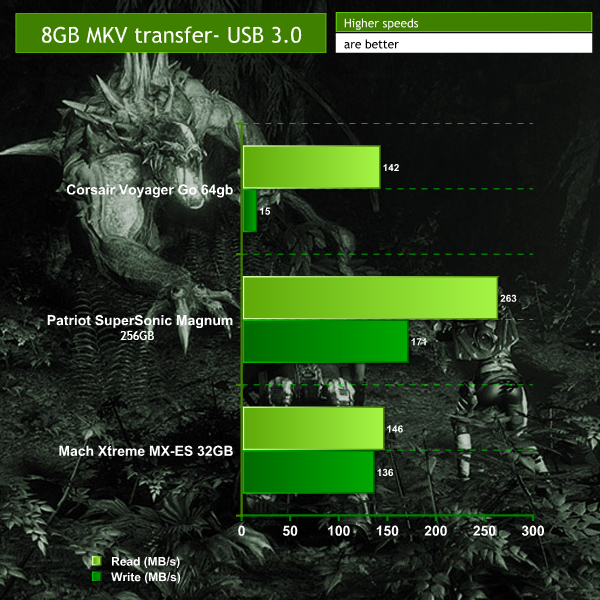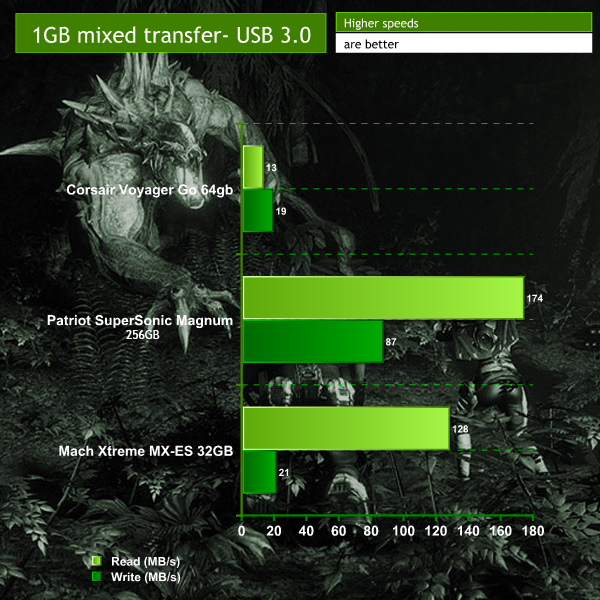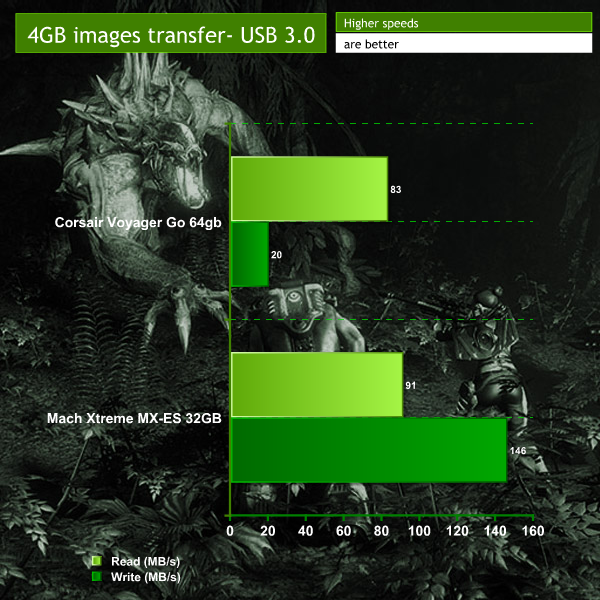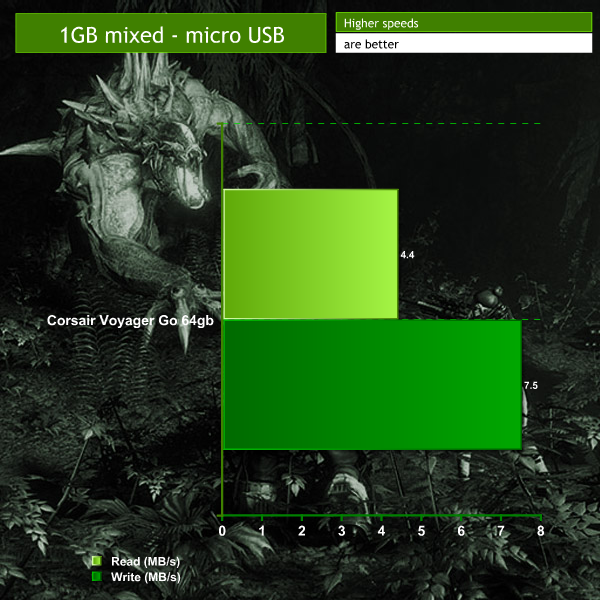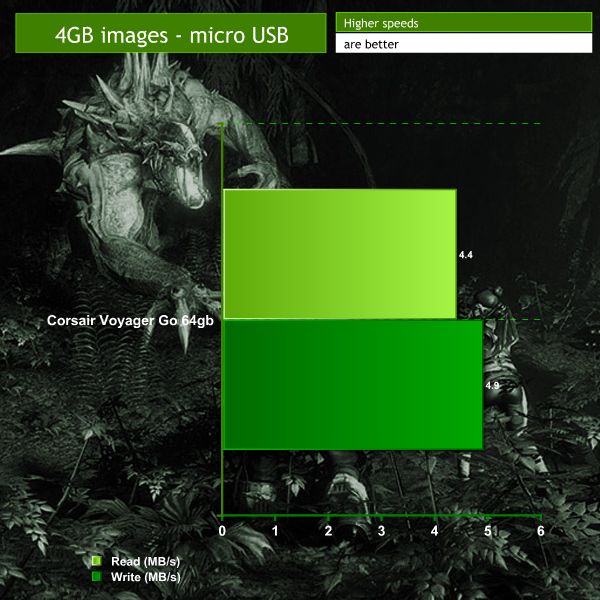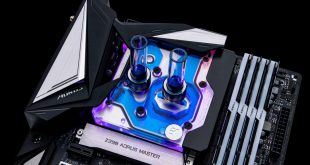To test this device, we used a Samsung Galaxy SII and the following desktop PC:
CPU: Intel i5 760
Memory: 8GB (2x4GB) Corsair Vengeance
Solid State Drive: Kingston HyperX 3k 120GB SSD
Motherboard: ASUS P7P55D-E
Power Supply: Corsair 650w TX
Graphics Card: Sapphire VaporX 280X
Comparison drives: Patriot Supersonic Magnum 256GB USB 3.0, Mach Xtreme MX-ES 32GB USB 3.0. The Patriot, while much more expensive, is designed to show high end USB 3.0 speed, whereas the Mach Xtreme drive is there to show ‘average' USB 3.0 pen drive performance.
For real world benchmarking, we take several custom made folders full of different types of files of varying sizes and time their transfer to and from the device – thereby determining its read and write speed. For the first test, we used 8GB of MKV video files. In all but the phone tests, files were transferred to and from a Kingston HyperX 3k 120GB SSD.
Clearly right off the bat, the Voyager struggles with the write test, which is a shame considering it's more expensive than the (though smaller) Mach Xtreme drive. However, the read speeds are very strong, even if they fall far behind the vastly more expensive (£180) Patriot SuperSonic – hardly a fair comparison.
For the mixed file test, we send over a 1GB folder filled with a combination of general office documents, photos, a couple of video files and some MP3s, timing the transfer speeds as before.
While mixed files tend to knock performance quite a lot, it's a shame to see the Voyager Go fall down so much here. Oddly its write performance improves and is almost able to match pace with the Mach Xtreme drive. However its read performance becomes woeful, making this a product that would be hard to recommend for serious business users.
Perhaps it'll be better at transferring images though, something that the Go seems focused on, being a smartphone backup drive. In this test we took a folder filled with 4GB of photos of different sizes and qualities and transferred it to and from the drive.
Here we see much better performance, suggesting that with uniform files, the Go is in its element. It's results are still lower than the cheaper Mach Xtreme drive, specifically when it comes to write speed, but it must be remembered that it is a physically more compact device and is designed with phone transfers in mind.
So, since that's what the Go is designed for, perhaps it will perform better when sending files back and forth to a smartphone? In this case we used the Galaxy SII.
Side note, you need to enable multi-user read/write permissions on the Voyager Go before it will allow you to transfer to and from a mobile handset.
First we'll try out the 1GB of mixed files.
Performance here is reasonable, though there may be some bottlenecking due to the phone's storage speed. More testing with different file types/sizes should make that more obvious if that's the case.
Let's try it with the 4GB of images.
From these results it seems the Galaxy SII's write speed is hindering the read speed of the Corsair Voyager drive. Perhaps a more modern smartphone would perform better, but it's worth bearing in mind that file transfers to and from the Go when hooked up to a smartphone, aren't the quickest.
However bear in mind that all of the files transferred in these tests were large, all over a gigabyte and most of them multiple. Even if the read/write speed is slow, if you're only transferring a hundred or so pictures, it's still not going to take very long – a few minutes at most and in the case of the phone/Go tests, you need not even be near a computer.
 KitGuru KitGuru.net – Tech News | Hardware News | Hardware Reviews | IOS | Mobile | Gaming | Graphics Cards
KitGuru KitGuru.net – Tech News | Hardware News | Hardware Reviews | IOS | Mobile | Gaming | Graphics Cards


